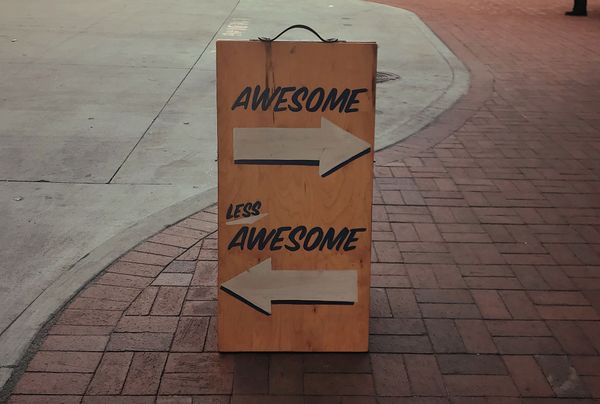Websites and Apps, why bother? #006
I want us to consider why we have web sites, why we have apps.

Why? Why bother having a website? Why bother having an app.

Communication.
We want to communicate, it may be two-way, it may be us shouting, but we would like to be able to communicate with people. The natural transference if you like from what was print media onto a screen; text, images, video.
A Sales Channel
We wish to sell stuff. Websites aren't cheap. Cheap websites are often rubbish, put it that way. Anybody can create a website, it will cost you very little if you spend a bit of time on it, but it doesn’t mean that it does what you want to do, or meets an objective.
We want to sell stuff, we want to communicate, what else?
The more we know about our customers, the better informed we are. The more informed we are (marketing students) the more we cater for those ‘needs and wants’.
Making money, because money is good. Never be afraid of making money.
Pelkenon (2003) stems from a study in Finland relating to digital media. According to them, there is also efficiency and content. Some sites are commerce-driven, such as Amazon and Ebay and as such are aesthetically formulaic. Some sites are very much about the content, when you think about the B.B.C. you may think about iPlayer, you might think about the movement in video and other options such as YouTube, Netflix, Apple, and Amazon. Historically, the government in the UK spent more money on advertising, I think, than any other individual entity. They try to get us to eat healthily, they want us to do certain things. Tax is online, and it's very straightforward, it's very efficient. Car tax; go online, punch a number, pay the bill. The Government use the .gov domain to communicate a considerable volume of information.
Efficiency
Applying to attend university; most people in the UK go through UCAS and fill in a form. Can you imagine doing the exercise by paper? Handwriting in black pen with capitals? We had to do that when we were younger, it's very laborious.

There are numerous development methods. Some stem from the Project Management arena sush as he waterfall method or Systems Analysis and Design Methodology (SSADM). If you come from the way of science, if you come from the computing side of things you may have experience of Project Management and there are specific methodologies that you might use to go from project start to project completion. Go back 15-20 years, and there was quite a lot of literature on various different models and frameworks. It was a time when people were researching the methods associated with the Internet and how websites were created. There was a framework based on 'Goals', 'Audience' and 'Scope', there was the 'MUDPY' method by Sharda, the Hyper Media Design Methodoloy and there was Movement Orientated Design. One such method that appeared to stand the test of time came from GoTo Media and the U.S. that was subsequently adopted by Macromedia for Dreamweaver prior to its acquisition by Adobe.
Creativity is much more intrinsic to ourselves. How you draw a picture may be very different to way I would draw the same image.

References
Barry, C. & Lang, M. (2003) A comparison of ‘traditional’ and multimedia information systems development practices. Information and Software Technology, 45, 217-227.
Jakkilinki, R. Sharda, N. & Ahmad. I. (2006) MUDPY ontology: a tool for multimedia project planning, design and development. Journal of Enterprise Information Management Vol. 19 No. 2, 2006 pp. 165-174
Lang, M. (2002) Hypermedia Systems Development: Do We Really Need New Methods? In Cohen, E. & Boyd, E. (eds), Proceedings of the Informing Science + IT Education Conference, Cork, Ireland, June 19-21, pp. 883-891. InformingScience.org. ISBN 1535-0703
Sharda, N. (2004) Movement Oriented Design: A New Paradigm for Multimedia Design. Keynote address at the First World Congress on Lateral Computing,




